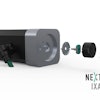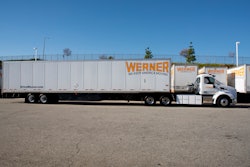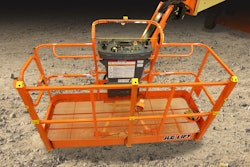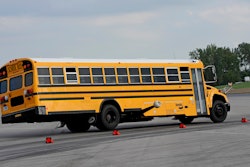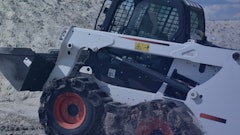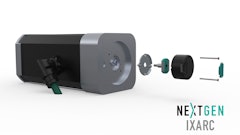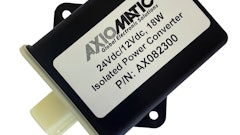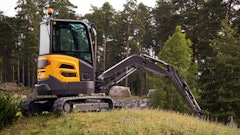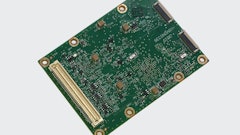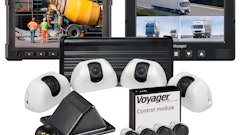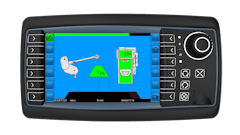Full-stability technology is so prevalent on today’s commercial vehicles, and has been so rapidly adopted in recent years, that it’s easy to overlook its journey from a groundbreaking idea to an industry standard. The Bendix ESP Electronic Stability Program – North America’s first widely available commercial vehicle full-stability system – has now been delivered on more than 700,000 trucks, buses, and motorcoaches, enhancing safety as both a stand-alone technology and as the foundation for more advanced driver assistance systems.
“When we introduced ESP to the market in 2005, we were confident in its effectiveness, value, and its capacity to help make driving safer in a wide range of applications,” says TJ Thomas, Bendix Director of Marketing and Customer Solutions – Controls. “Fourteen years later and countless miles travelled, ESP has become more than just a road-tested and fleet-proven system: It’s a difference-maker that’s now standard at most major truck and bus manufacturers, and it’s the solid base upon which our even more advanced leading-edge safety systems are constructed.”
The growth of Bendix ESP reflects not only the increasingly fast adoption of full-stability technology – according to Thomas, over the last 5 years alone, ESP’s market penetration now ranges between 25-30% of total registered Class 8 trucks – but also the trust and sustained adoption that Bendix’s system has earned in the market.
Bendix, the North American leader in the development and manufacture of active safety, air management, and braking system technologies for commercial vehicles, is the industry’s most experienced manufacturer of full-stability (also known as Electronic Stability Control, or ESC). The company recently completed its 19th consecutive year of winter testing on its ESP system, along with other advanced driver assistance technologies.
Setting the Standard: Present and Future
North American truck manufacturers that offer Bendix ESP as standard equipment include Kenworth, Peterbilt, Mack, Volvo, and International. The system also comes standard on Ford F-650 and F-750 tractors and is an option on certain F-750 straight truck configurations. Bendix ESP is available for more than 80% of all medium-duty chassis configurations at PACCAR and Navistar.
Bendix’s flagship integrated collision mitigation technology, Bendix Wingman Fusion, as well as Bendix® Wingman Advanced – A Collision Mitigation Technology, also hold standard and optional positions on several medium- and heavy-duty trucks. Both systems are built on ESP.
North American school bus manufacturers Blue Bird Corporation and IC Bus (a subsidiary of Navistar) have both made ESP standard on air-braked buses, and IC Bus has made Wingman Advanced standard as well. ESP is also offered by motorcoach manufacturers Prevost and Motor Coach Industries (MCI).
In many instances, fleets and manufacturers were ahead of the curve in equipping and offering Bendix ESP, since it was 2015 before full-stability control was legislated as a new vehicle requirement. Beginning in 2017, the National Highway Traffic Safety Administration (NHTSA) mandated full-stability technology on new Class 7 and 8 6x4 tractors with a gross vehicle weight rating of greater than 11,793 kg (26,000 lbs.). Phase two impacted Class 8 buses last year, and phase three, encompassing most remaining Class 7 and 8 highway tractor and motorcoach applications, will go into effect on August 1 of this year, barring regulatory changes.
Acceptance and Advantages
Both industry acceptance and the NHTSA requirement reflected years of research supporting the superiority of full-stability systems over stand-alone anti-lock braking systems and roll-only technology known as Roll Stability Control.
Because full-stability systems include more sensors backed by more advanced software algorithms, the technology can address both roll and directional stability, more quickly recognizing factors that could lead to vehicle rollovers or loss of control. Full-stability systems can also utilize automatic brake interventions involving the steer, drive, and trailer axles.
“Being connected to all the axles is a key factor, because it enables the system to control brake pressure at each wheel-end,” Thomas says. “By varying the pressure depending on the sensor readings and driver input, a full-stability system like Bendix ESP helps reduce the impact of forces that can lead to rollovers and loss-of-control situations. That operational strategy also provides the fundamental approach to the continuously advancing automated braking capabilities of collision mitigation systems, which means that as Bendix rolls out the availability of retrofitting systems like Wingman Fusion and Wingman Advanced, ESP will be a baseline requirement.”
As the foundational technology of ESP further strengthens its place in the commercial vehicle market, Bendix continues to shape tomorrow’s transportation – in concert with its industry partners.
Bendix stresses that systems like ESP and higher-level technologies are designed to assist drivers – but there’s no replacing the need for safe, alert professional drivers practicing safe driving habits. The men and women behind the wheel – supported by proactive, ongoing driver training – are vital to highway safety, and maintain responsibility for the safe operation of any vehicle at all times.



